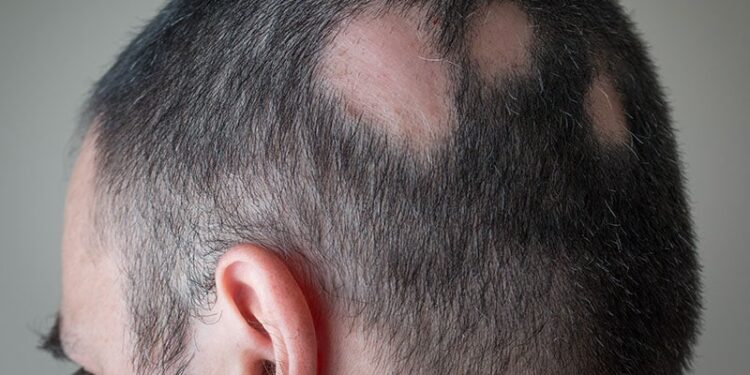TOPLINE:
In a cross-sectional study of patients with alopecia areata (AA), illness perceptions and stigma were found to be associated with worse quality of life and increased levels of anxiety and depression compared with disease severity. Two distinct patient profiles were identified on the basis of illness perceptions — “coping” and “distressed” — with significantly different psychological outcomes.
METHODOLOGY:
- This study included 596 adult participants with AA (median age at diagnosis, 26 years; 85% women) who self-reported disease severity using an online questionnaire between September 2021 and August 2024.
- Outcome measures included Dermatology Life Quality Index, EuroQol 5-Dimensional 5-Level questionnaire and EuroQol Visual Analog Scale, Hospital Anxiety and Depression Scale, Stigma Scale for Chronic Illnesses 8-Item Version, and Brief Illness Perception Questionnaire.
- Hierarchical regression models were used to assess contributions of illness perceptions and stigma to quality of life, anxiety, and depression, irrespective of demographics and disease severity.
- Researchers performed a cluster analysis to identify distinct patient groups who shared similar patterns of illness perceptions.
TAKEAWAY:
- Overall, 35% of patients reported a major quality-of-life impact, 34% had difficulty with daily activities, and 42% experienced pain or discomfort; 65% of patients felt anxious and 46% felt depressed; 67% and 39% of patients were embarrassed by their illness and physical limits, respectively.
- Patients with severe AA (≥ 50% hair loss) showed higher levels of perceived consequences and longer disease duration than those with mild-to-moderate AA (< 50% hair loss; P < .001 for both).
- Illness perceptions accounted for an additional 40%-45% of variance in quality of life, anxiety, and depression scores over and above that accounted for by disease severity. Stigma accounted for an additional 4%-6% of variance beyond that explained by illness perceptions.
- Both illness perceptions and stigma were significantly associated with worse quality of life and increased levels of anxiety and depressive symptoms (P < .001 for all).
- The cluster analysis identified two distinct patient profiles: “coping” and “distressed,” where patients in the distressed cluster showed significantly impaired quality of life and higher levels of anxiety, depression, and stigma compared with those in the coping cluster (P < .001 for all).
IN PRACTICE:
“Illness perceptions and stigma among patients with AA explain much more variance in QoL [quality of life], anxiety and depression than in disease severity and demographic variables. The identification of two distinct patient profiles based on these perceptions highlights significant differences in the psychosocial burden of AA and identifies patients at risk of experiencing worse psychological outcomes,” the authors wrote, emphasising “the crucial role of health professionals in evaluating and addressing negative illness perceptions and stigma through tailored interventions.”
SOURCE:
This study was led by Evangelos Christou and Nikolina Lalagianni, St John’s Institute of Dermatology, Guy’s and St Thomas’ NHS Foundation Trust, London, England. It was published online on July 16, 2025, in the British Journal of Dermatology.
LIMITATIONS:
This study used a cross-sectional design, limiting its ability to establish causal relationships. Its findings were not generalisable because the participant population lacked diversity. Although patient-reported disease severity assessment showed high concordance with physician ratings, the cluster analysis generated sample-specific groups requiring validation in future cohorts.
DISCLOSURES:
This study was supported by a commercial academic grant from Pfizer and by the King’s Health Partners Centre for Translational Medicine. One author reported receiving funding from the Medical Research Council, Pfizer, Sanofi/Regeneron, Sun Pharma, and Leo Pharma. Another author declared being the editor-in-chief of the British Journal of Dermatology. The remaining authors declared having no conflicts of interest.
This article was created using several editorial tools, including AI, as part of the process. Human editors reviewed this content before publication.
Source link : https://www.medscape.com/viewarticle/illness-perceptions-and-stigma-vs-disease-severity-tied-2025a1000jdv?src=rss
Author :
Publish date : 2025-07-24 12:00:00
Copyright for syndicated content belongs to the linked Source.














